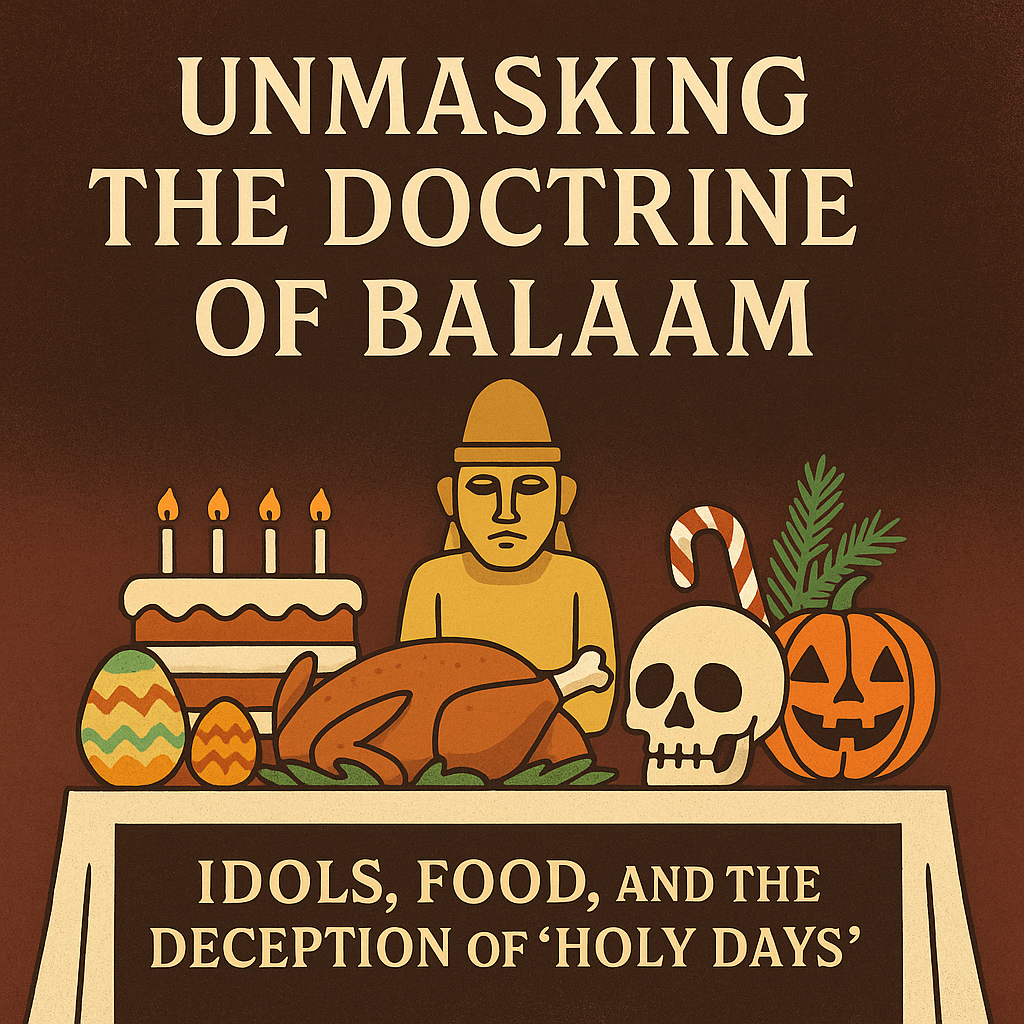
Unmasking the Doctrine of Balaam: The Food, the Idols, and the Deception of “Holy Days”
Share
Scripture anchors: Numbers 22–25; 31:16 • Daniel 1:8 • 1 Corinthians 10:20–21 • Revelation 2:14–16 • 2 Corinthians 6:17 • John 4:23–24
What if the greatest deception in the church isn’t the idols you see, but the food you eat? Balaam knew it. Daniel saw it. Jesus warned about it. And yet, many believers happily sit down at the very table He told us to avoid.
Balaam: The Prophet Who Sold Out
Balaam had a real gift from God, but he sold himself to the highest bidder. King Balak of Moab wanted Israel cursed, yet every time Balaam opened his mouth, God turned the curse into a blessing (Numbers 22–24). So Balaam pivoted. If he couldn’t curse God’s people head-on, he would corrupt them from within.
His counsel? Use a feast. Send the Moabite women, invite Israel to sacrificial meals, lure them into idolatry and immorality (Numbers 25:1–3; 31:16). It worked. Israel ate at the table of idols, bowed to false gods, and fell under judgment—24,000 died (Numbers 25:9). When Satan can’t crush the church, he courts her with compromise.
The Table Is an Altar
- Daniel 1:8: Daniel resolved not to defile himself with the king’s food because it was tied to Babylon’s worship.
- 1 Corinthians 10:20–21: “You cannot partake of the Lord’s table and the table of demons.” Fellowship at a feast is spiritual participation.
- Revelation 2:14: Jesus rebukes the church in Pergamum for tolerating the teaching of Balaam—eating things sacrificed to idols and sexual immorality.
Biblically, a feast is never “just food.” The table reveals the altar—and the altar reveals the god.
Pagan Feasts Disguised as “Holy Days”
Balaam’s tactic didn’t disappear; it put on new costumes:
- Christmas: Saturnalia/Yule roots—evergreen symbols, gift cycles, and mid-winter revelry dressed in “Christian tradition.”
- Easter: Fertility rites (Eastre/Ishtar)—eggs, rabbits, and sunrise observances attached to spring equinox patterns.
- Birthdays: Cakes, candles, and wishes trace to pagan offerings; the cake functions like an altar and the person is exalted as “idol of the day.”
- Halloween/Harvest: Samhain customs—food and drink for spirits of the dead, now sugar-coated with costumes and candy.
Each one arrives with a feast. Each one is marketed as “harmless fun.” Each one replays Balaam’s bait: calling what is unholy, holy.
Why Jesus Hates the Doctrine of Balaam
Revelation 2:14–16 is blunt: tolerating Balaam’s teaching is a stumbling block. It trains believers to join idolatrous tables while imagining they still honor Christ. This doctrine kills by dilution—mixing truth with just enough compromise to numb conviction.
The Call to God’s People
- “Come out from among them and be separate.” (2 Corinthians 6:17)
- Worship in Spirit and truth. (John 4:23–24)
- Repent or face the sword of His mouth. (Revelation 2:16)
This is not about being cranky with culture; it’s about being clean before God. Guard your table. Choose the Lord’s feast over the world’s festival.
Choose Your Table
The doctrine of Balaam hides in family gatherings, holiday meals, birthday rituals, and traditions that look holy but aren’t. Remember: the feast is the altar, and the table exposes the god you’re honoring. Choose carefully—only one table is truly holy: the Lord’s.